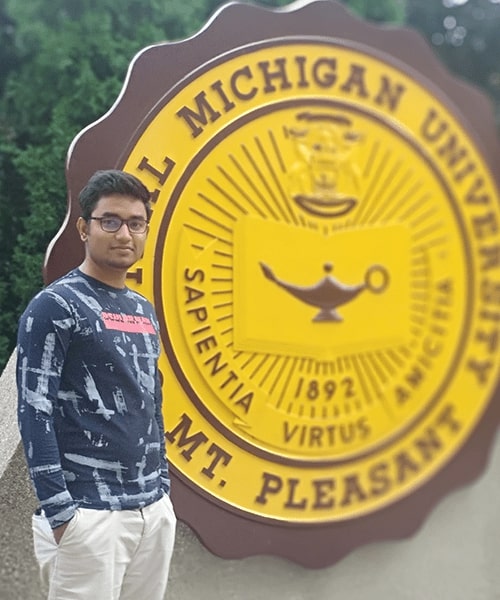
Start up
Passion. Potential. Pitches. Don't miss any of the 2025 New Venture Challenge excitement.
Tune in Friday, April 11 at 1 p.m. for great ideas and fierce competition. Then, join the judges, mentors, spectators and teams as they see who is going home with thousands of dollars in venture financing. The awards broadcast begins at 6:30 p.m. and one team will walk away as the overall best venture.
Central Michigan University’s College of Business Administration is the home of the Isabella Bank Institute for Entrepreneurship and the first Department of Entrepreneurship in the state of Michigan. We are a student-centric hub where experiential, curricular, and external entrepreneurial opportunities intersect.
Our mission is to maximize student success by fostering a campus-wide entrepreneurial mindset that promotes inter-disciplinary collaboration and the creation of new ventures.
We aim to create innovative programming, boost cross-campus and ecosystem collaboration and provide a comprehensive mentoring program.
Our institute provides extracurricular opportunities and is open to all undergraduate and graduate CMU students.
Are you interested in becoming an entrepreneur?
Every journey is unique. Explore the opportunities that interest you.
 Ezazul Haque Sabuz a graduate student in Engineering, researched corrosion resistance of 3D printed steel using thin film coating. In Concentrated Solar Power (CSP) plants, mechanical components can degrade because of corrosion caused by molten salts. The manufacturing of the components with conventional technology creates a lot of material waste and restricts design flexibility, so 3D printing is becoming more popular.
Ezazul Haque Sabuz a graduate student in Engineering, researched corrosion resistance of 3D printed steel using thin film coating. In Concentrated Solar Power (CSP) plants, mechanical components can degrade because of corrosion caused by molten salts. The manufacturing of the components with conventional technology creates a lot of material waste and restricts design flexibility, so 3D printing is becoming more popular.
In Sabuz’s study, Titanium-Zirconium-Nitride (TiZrN) coating was added to 3D printed 8620 steel to test how it would react in an environment with nitrate salts. The coating improved the corrosion resistance of the steel, making coated 3D printed 8620 steel “an excellent candidate for application in CSP plants.”
Sabuz was inspired to research this topic due to the increase in global average temperature because of increased use of fossil fuel-based energy sources. Sabuz says, “Bangladesh, my home country, will be the most negatively impacted country by global warming. Adopting renewable energy sources instead of fossil fuels can be crucial in slowing down the increase in global temperature.” His research addressed the issue of CSP plants facing corrosion limitations.
Sabuz’s research involved several experiments such as Potentiodynamic Polarization, Electrochemical Impedance Spectroscopy, high-temperature corrosion tests, X-ray Diffraction, and Scanning Electron Microscopy. Every experiment supported that the coating was successful in decreasing the corrosion rate.
Sabuz has received multiple offers from companies to begin working after graduation. He has also began working as a Design Engineer at an automotive company that develops electric trucks. He hopes to “continue learning in this arena for a sustainable future.”
This story is brought to you by the Office of Research and Graduate Studies.

Explore special opportunities to learn new skills and travel the world.

Present your venture and win BIG at the New Venture Challenge.

Boost your entrepreneurial skills through our workshops, mentor meetups and pitch competitions.

Learn about the entrepreneurship makerspace on campus in Grawn Hall.

Present a 2-minute pitch at the Make-A-Pitch Competition and you could win prizes and bragging rights!

Connect with mentors and faculty who are here to support the next generation of CMU entrepreneurs.

Are you a CMU alum looking to support CMU student entrepreneurs? Learn how you can support or donate to the Entrepreneurship Institute.